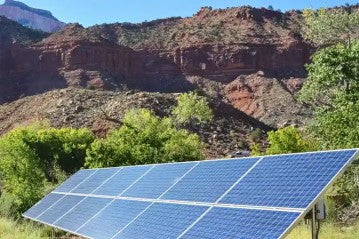
As the demand for renewable energy sources continues to rise, solar power has emerged as a prominent solution for sustainable electricity generation. Solar energy systems comprise various components, including solar panels, batteries, and inverters. In this blog post, we will focus on the significance of solar inverters and explore the concept of a solar inverter charger, shedding light on its benefits and applications. If you're considering investing in solar energy-related products, understanding the role of a solar inverter charger is crucial.
1. What are Inverters and Why Do I Need Them?
Solar panels generate direct current (DC) electricity from sunlight, which needs to be converted into alternating current (AC) for practical use. This is where inverters come into play. Inverters are essential components in solar energy systems as they convert DC power produced by solar panels into AC power that can be used to operate household appliances, commercial equipment, and other electrical devices. Inverters ensure compatibility between solar-generated electricity and the electrical grid or the devices within a building.
2. What is a Solar Inverter Charger?
A solar inverter charger is a versatile device that combines the functionalities of an inverter and a battery charger. It enables seamless integration of solar power with battery storage systems. Solar inverter chargers not only convert DC power from solar panels into AC power for immediate use but also facilitate the charging of batteries for later use when sunlight is scarce or during power outages. They provide a comprehensive solution for solar energy utilization, offering both grid-tied and off-grid capabilities.
3. Who Should Purchase a Solar Inverter Charger?
Solar inverter chargers cater to a wide range of customers, including homeowners, businesses, and individuals seeking energy independence. Here are a few scenarios where a solar inverter charger proves beneficial:
a. Grid-Tied Solar Systems: If you reside in an area with a stable electrical grid, a solar inverter charger helps maximize your solar energy utilization. Excess solar energy produced during the day can be fed back into the grid, offsetting your energy consumption and potentially reducing your utility bills.
b. Off-Grid Applications: For those living in remote locations or areas with unreliable grid access, a solar inverter charger coupled with a battery bank provides a reliable and independent power supply. It ensures continuous electricity availability, even when the solar panels cannot generate electricity due to unfavorable weather conditions or during the night.
c. Backup Power Solution: Solar inverter chargers equipped with battery storage capabilities serve as an excellent backup power solution. During grid outages or emergencies, the stored energy in the batteries can be utilized to power essential appliances, offering peace of mind and ensuring continuity of critical operations.
4. What Size Solar Inverter Charger Do I Need?
Determining the appropriate size of a solar inverter charger depends on various factors, including the power requirements of your appliances, the capacity of your battery bank, and the solar panel output. It's important to consider both the maximum power demand of your electrical load and the surge power requirements during the startup of certain devices.
To accurately size a solar inverter charger, you can consult a solar energy professional or follow these general steps:
a. Calculate Total Power Consumption: Determine the total wattage of the electrical devices you intend to power using the solar inverter charger. This will give you an estimate of your maximum power demand.
b. Consider Surge Power Requirements: Identify any devices that require high surge power during startup, such as refrigerators or air conditioners. Make sure your solar inverter charger can handle these temporary power spikes.
c. Assess Battery Capacity: If you plan to incorporate battery storage, evaluate the capacity of your battery bank. Ensure the solar inverter charger can efficiently charge your batteries within a reasonable time frame, taking into account the available solar panel output.
d. Seek Expert Advice: For complex or larger-scale installations, it's advisable to consult a solar energy professional who can assess your specific requirements and recommend the most suitable solar inverter charger size.
Conclusion
Investing in a solar inverter charger empowers you to harness the full potential of solar energy, providing a seamless integration of renewable power generation and energy storage. Whether you aim for grid-tied solar systems, seek off-grid independence, or require a backup power solution, a solar inverter charger offers flexibility and reliability. By carefully evaluating your power consumption needs, surge requirements, and battery capacity, you can determine the appropriate size of the solar inverter charger for your solar installation.
If you are looking for the best solar inverter charger , look no further than Ecgsolax. We have the best solar inverter charger to suit any budget, place, or purpose:

0 Kommentare